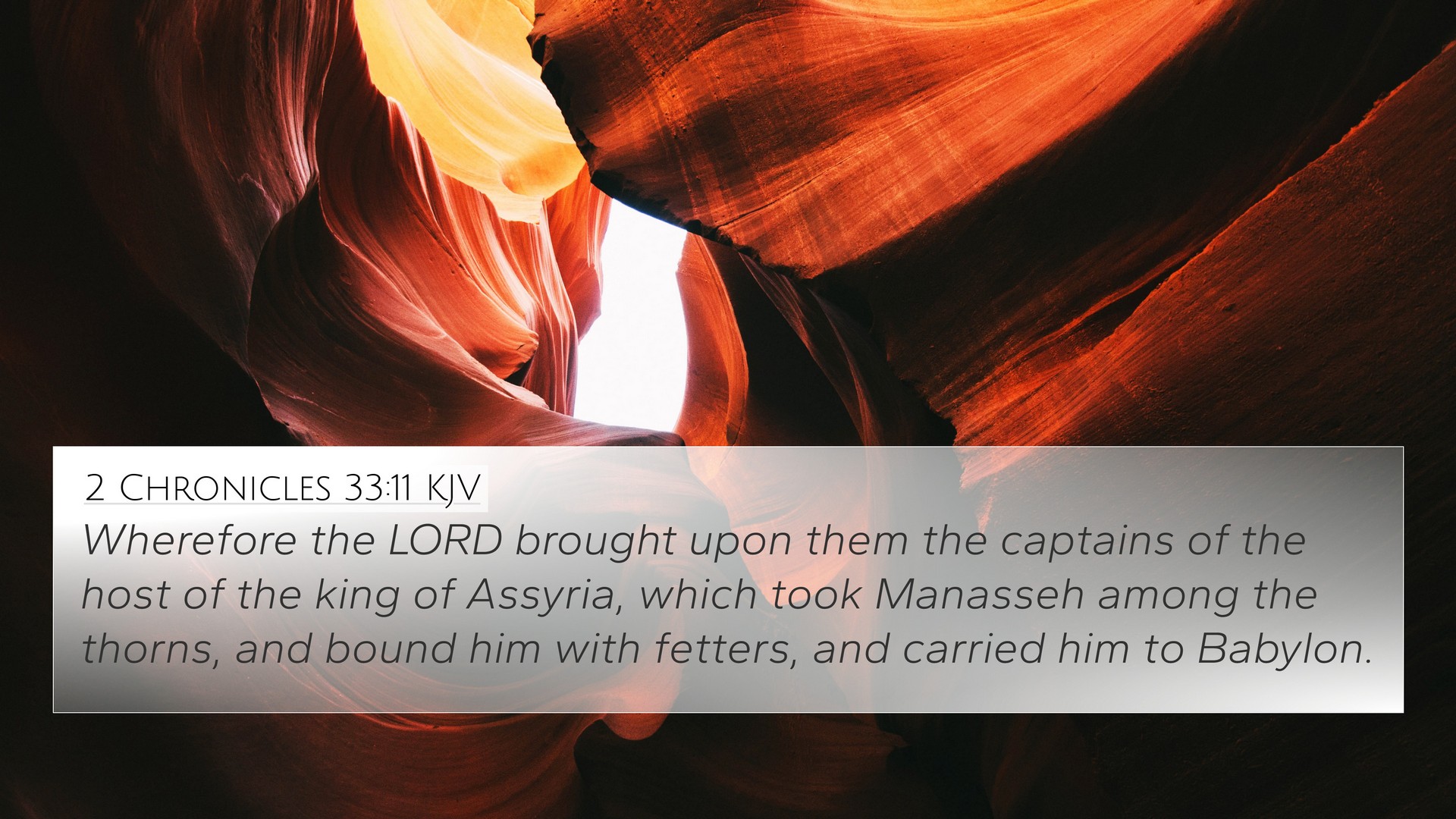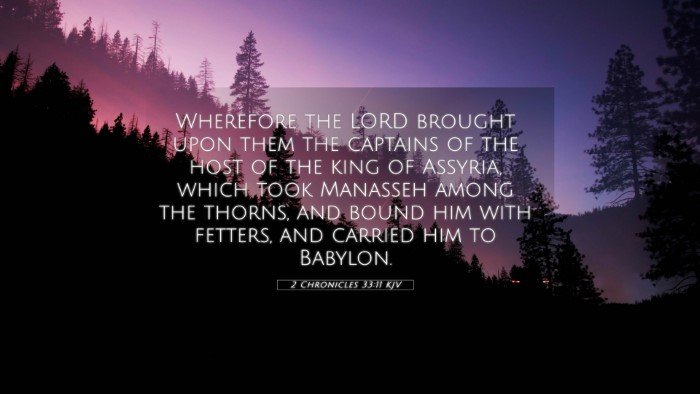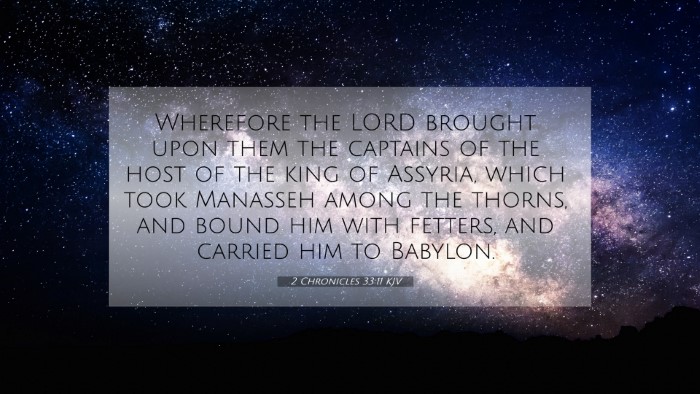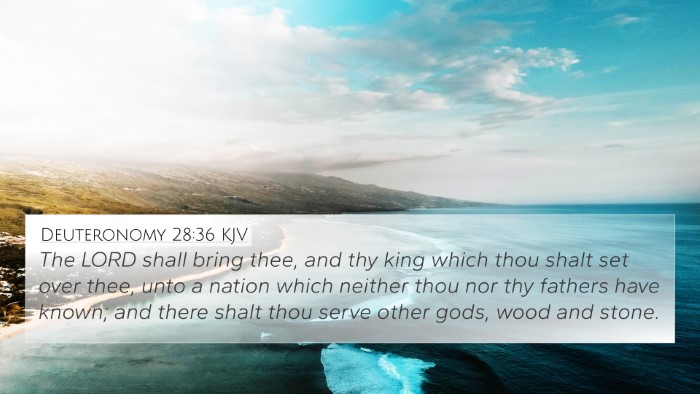Understanding 2 Chronicles 33:11
Verse Reference: 2 Chronicles 33:11 states, "Wherefore the LORD brought upon them the captains of the host of the king of Assyria, which took Manasseh among the thorns, and bound him with fetters, and carried him to Babylon."
Summary of Meaning
This verse describes a pivotal moment in the life of King Manasseh of Judah. After a period of great wickedness, idolatry, and turning away from God, Manasseh faced severe consequences as God allowed the Assyrian captains to capture him, leading to his binding and exile. This passage signifies the harsh realities of divine judgment and the possibility of redemption through repentance.
Commentary Insights
Several public domain commentaries offer valuable insights into the meaning of this verse:
- Matthew Henry: Henry emphasizes the tragedy of Manasseh's downfall, illustrating how one who had the opportunity to serve God community can fall into sin. His capture represents divine discipline designed to draw him back to repentance.
- Albert Barnes: Barnes discusses the socio-political context, noting that Manasseh's defeat is a result of divine providence. He highlights that the Assyrian Empire's rise was used as a tool of punishment and that this event marked the beginning of Manasseh's eventual return to God, showing that God can use even foreign powers to accomplish His purposes.
- Adam Clarke: Clarke points out the significance of "the thorns" mentioned in the verse, suggesting they symbolize the troubles and afflictions that befell Manasseh. His binding was necessary for his awakening and eventual restoration to a right relationship with God.
Thematic Bible Verse Connections
This verse can be cross-referenced with several other scriptures that enhance our understanding of its themes:
- 2 Kings 21:16: Similar account of Manasseh's sins and his bloodshed.
- 2 Chronicles 33:12-13: Manasseh’s subsequent prayer and repentance after his capture.
- Jeremiah 15:4: God's judgment upon Judah for idolatry, tying thematically into Manasseh's actions.
- Deuteronomy 28:49-50: Prophecy of impending judgment through foreign nations for disobedience.
- Luke 21:24: Alludes to Jerusalem’s future downfall, connecting the themes of captivity and judgment.
- Isaiah 10:5-6: Describes God using Assyria as a rod of His anger on sinful nations.
- Romans 11:22: A reminder of God's severity versus kindness found in judgment and grace.
Application and Reflection
This verse invites readers to reflect on the concepts of sin, judgment, and repentance. As Manasseh's story unfolds, we can learn about the merciful character of God, even amidst severe consequences. It teaches that no one is beyond redemption, and God can turn hearts back to Him, regardless of how far one has strayed.
Tools for Bible Cross-referencing
For a deeper understanding of how to connect such verses, biblical scholars and lay readers utilize various tools and methods:
- Bible Concordance: An essential tool for finding related texts and facilitating in-depth study.
- Cross-reference Bible Study: A systematic approach to explore connections between verses.
- Bible Reference Resources: Books and websites dedicated to cross-referencing verses.
- How to Use Bible Cross-references: Guidelines for effectively linking and understanding scripture.
Conclusion
In conclusion, 2 Chronicles 33:11 captures a moment in history that is rich with theological significance. It serves as a reminder not only of God’s justice but also of His readiness to forgive. Understanding this verse within the larger narrative of Scripture provides a holistic view of God's character and His dealings with humanity. The connections drawn between various biblical texts reveal a cohesive message of hope, redemption, and the transformative power of repentance.
















